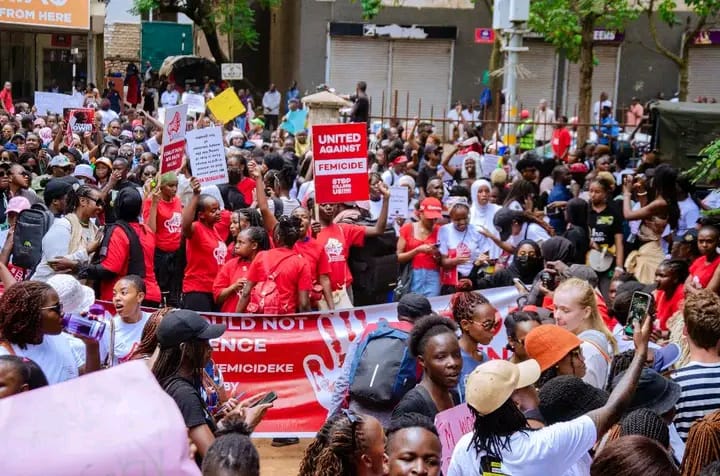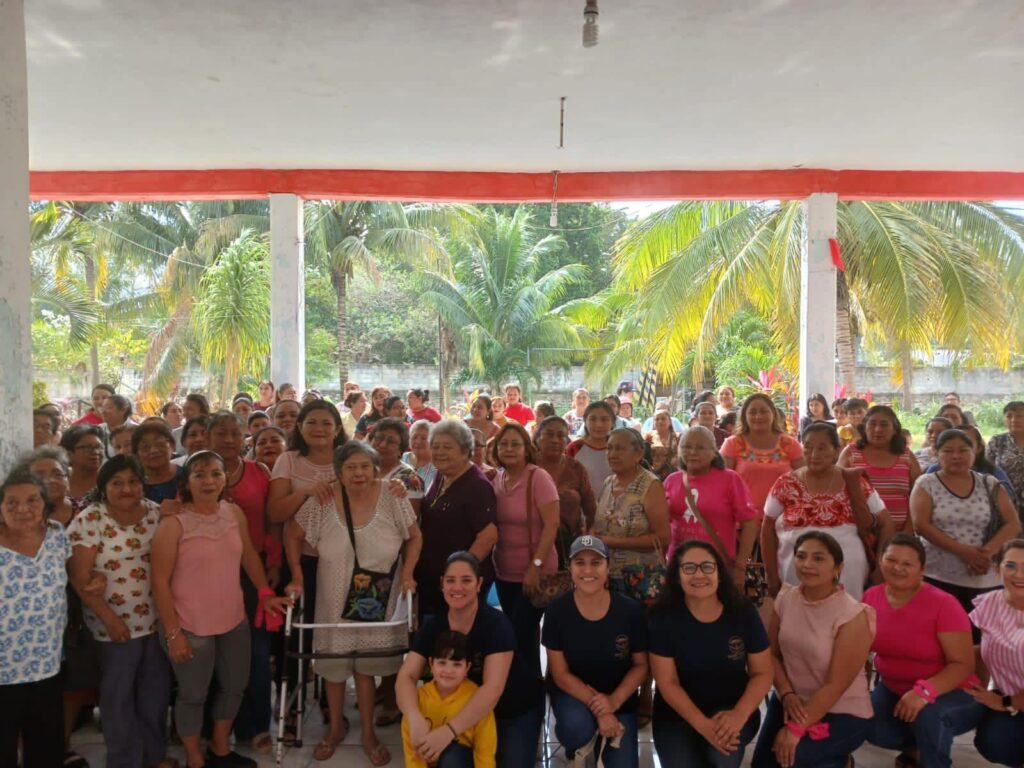Strong Women, Strong Voices: Interview with Regina Bafaki
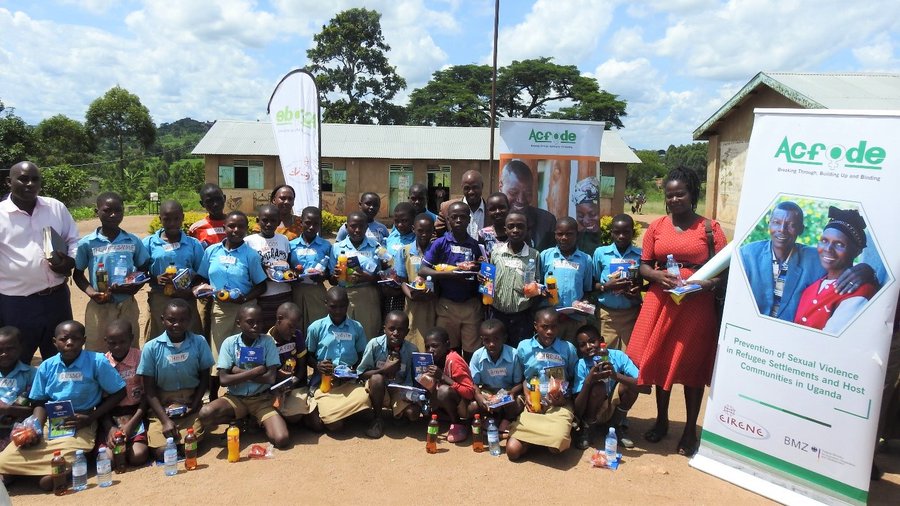
Regina Bafaki is the Executive Director for Action for Development (ACFODE), a women’s organization based in Kampala, Uganda. ACFODE was founded in 1985 to provide a platform for effective debate and action on women’s rights, empowerment, and gender equality in the East African country.
During its nearly four decades of existence, ACFODE has worked to:
- Increase women’s engagement in politics and decision-making
- Promote good governance and democracy throughout the country
- Eliminate discrimination and gender-based violence
- Drive policy change and programs that are gender-responsive
- Promote women’s economic security
- Collaborate and strengthen the capacity of civil society organizations doing similar work.
One of the most recent partners of WomenStrong International, Action for Development stands out for its success in elevating women’s economic opportunity and security in Kampala. We recently sat down with Ms. Bafaki to learn about her leadership style and ambitions for her organization.
Our Interview with Regina Bafaki
WomenStrong: Thank you for joining us today, Regina, and for your organization’s partnership with WomenStrong. We would like to start the interview by asking you about ACFODE’s vision to create “a just society where gender equality is a reality.” What does that mean to you? What does a just society look like?
Regina: Thank you very much. To us, a just society is a society where women, men, boys, and girls have equal access to opportunities, are not discriminated against, can freely express themselves, explore their potential, and lead dignified lives.
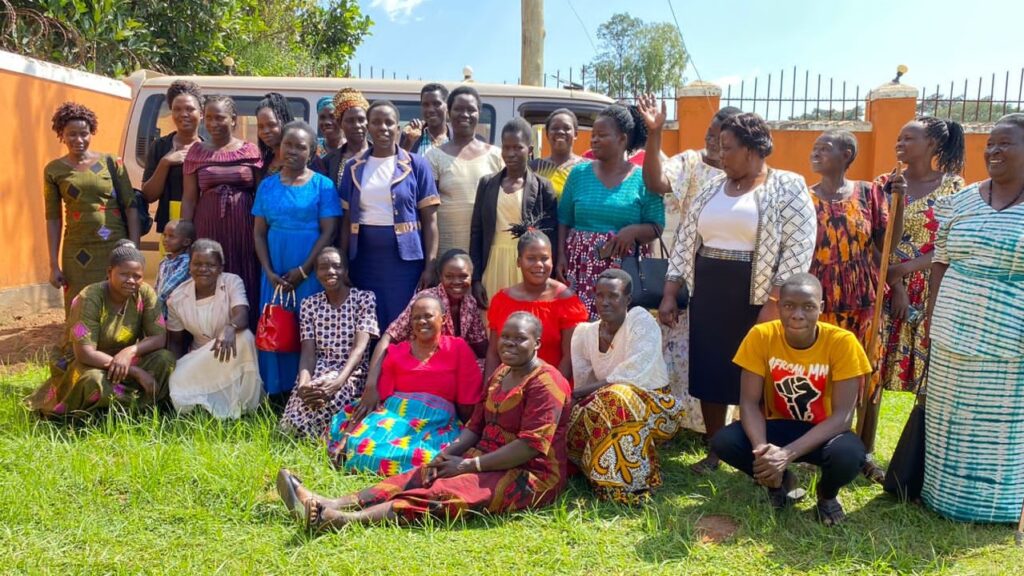
WomenStrong: That is a bold vision, particularly given the persistence of inequity, violence against women and girls, and resistance to social change. How does ACFODE work to make strides toward your goal?
Regina: We employ different strategies in an attempt address inequality and violence against women and girls as we strive toward a just society. As an advocacy organization, we collaborate with other organizations to lobby for laws and policies that protect women’s and girls’ rights. We translate legislation into local dialects and disseminate it widely; we also facilitate the formation of bylaws and ordinances at the local level. We mobilize and organize women and girls, while we also provide safe spaces and encourage them to spend time in such spaces, where others appreciate their rights, share experiences, and help build agency and collective voice for the protection of girls’ and women’s rights.
We work with religious and cultural leaders, school authorities, and parents, who yield a lot of power and influence in society, to recognize and promote women and girls’ rights and gender equality. We deliberately identify families that violate women’s and girls’ rights and work with these families on gender norms, women’s rights, and children’s rights. These families later become role models and champion the rights of women and girls in their societies.
We also build and organize accountability fora for elected officials and civil servants, to call them to perform their duty in the protection of women’s and girls’ rights.
Working with organized groups, such as youth groups, students, cooperatives, and media, we partner with champions of women’s and girl’s rights and gender equality. ACFODE offers reflection meetings for staff, our board, and members to review the approaches we use and to identify new learnings and strategies.
WomenStrong: ACFODE focuses on four key areas of work: (1) policy advocacy and research, (2) leadership development, (3) economic empowerment, and (4) transformative social-cultural change. First, what does transformative social-cultural change look like to you? How do you go about it?
Regina: Transformational social-cultural change occurs when there is a shift in beliefs, values, and norms. To me, such change happens when society’s behavior towards women and other vulnerable groups improves, and their rights are promoted and respected. It’s when women are supported to explore their potential in different aspects of life, such as leadership, asset acquisition – and when girls are given the same treatment as boys, for instance, in education and the inheritance of property. Meaningful change also happens when society recognizes the social and gender norms that perpetuate gender inequality, and when society addresses the norms either individually or collectively. Change also shows when there is a shift in the use of power; for instance, when there is joint decision-making between a husband and his spouse, and when there is respect for choices made by women and girls about their own sexual and reproductive health.
ACFODE addresses social-cultural change through a multipronged approach that includes research and documentation, capacity building with families (couples), women’s groups, cooperatives, cultural and religious leaders, teachers, elected officials and civil servants, and young people. We use media advocacy and help establish community structures that facilitate, monitor, and record the social-cultural changes. We also collaborate with likeminded organizations, development partners, academic institutions, and government agencies.
WomenStrong: Of your four pillars of work, is there one you feel needs the most support – whether from partners, funders, or policymakers?
Regina: All the pillars of our work are important and interlink with each other; however, economic empowerment needs more support from partners, funders, and policymakers.
Economic empowerment supports women’s abilities to achieve wellbeing and reduces household poverty. Our economic empowerment initiatives enable ACFODE and the women we work with to explore and use existing opportunities, as well as to have greater access to and control over productive resources for their security. Economic empowerment enables women to access decent work, control their lives, use their voices and agency to influence policy change; and promotes their participation in decision-making at the family and societal levels, which in turn contributes to national development. Having financial security also enables women to access justice, in case their rights are violated and reduces their vulnerability.
WomenStrong: How did you, yourself, get into this work, Regina? What called you to ACFODE and its mission?
Regina: I got involved in this work through a friend who was working at ACFODE, who used to share her interactions with the women they were working with in different parts of the country, and the publications she brought to me. I love reading. Some stories resonated well with my lived realities at the personal and community levels. This experience intrigued me to learn more about women’s rights and gender and shaped my choice for further studies; I earned a master’s in Gender and Development Studies. Thereafter, I got involved in the women’s movement – work that led me into closer contact with ACFODE and eventually to my employment.
WomenStrong: We’re thrilled to partner with your organization. Could you talk more about the partnership? How are the two organizations collaborating now?
Regina: ACFODE is equally thrilled about the partnership with WomenStrong. The current partnership began in June 2023 and lasts until March 2024.
The funding supports a project aimed at increasing women’s groups’ income and asset ownership in Kasese, in Western Uganda, one of ACFODE’s districts of operation. The partnership will enable us to complete three vital activities:
- To conduct a needs assessment of women so that we can support them with digital financial services, particularly financial literacy
- To train the selected 90 women in social enterprises
- To coach women and their spouses on gender equality, power, and social and gender norms.
We will also produce communication materials for awareness-raising.
During our grant period, we are collaborating with other WomenStrong partners in their Learning Lab. The Lab presents ACFODE with an opportunity to learn from other partners and through capacity strengthening activities. We have had capacity conversations with the WomenStrong team to identify our needs, reflect, and synthesize them into priority areas that are addressed through a capacity building fund. The Learning Lab also gives us new insights and recommendations, and the WomenStrong team is accompanying us on this journey.
WomenStrong: ACFODE has hosted Conversation Circles in the recent past. What is the benefit of these conversations, and how do they spur action?
Regina: True, ACFODE has organized conversation circles at the national and local levels, focusing on different issues or topics that range from democraticgovernance and women’s participation in politics and decision-making, to social and gender accountability, to gender equality and care work, gender equality and digitalization, gender and financial inclusion, social and gender norms, and demographic divides and opportunities.
The conversation circles enable stakeholders to engage on different issues and collectively come up with solutions. The interactions promote cross-learning among the participants and provide safe spaces in which problematic issues or challenges are discussed freely and solutions or strategies agreed upon. The conversation circles provide opportunities for collaboration and partnerships. A wealth of knowledge is generated through the conversation circles, compared to what can be gathered in formal meetings or workshops. The conversations have enabled ACFODE to reflect and to find innovations or approaches that are embraced by community members or participants. Conversation circles also contribute contextual information for new programs or interventions and promote inclusion in the development agenda of the country.
WomenStrong: Action for Development hosts a mentorship program. Can you tell us about the history of the program and some of the success stories you have seen?
Regina: Since our founding 37 years ago, the organization has mentored young people through internships, usually for three months, and by placing them as volunteers within the organization for one or two years under the supervision of program officers. ACFODE’s mentoring program, “Decide Now,” in effect between 2017 and 2018, supported 50 young people (35 females and 15 males) ages 18-35. The youths were trained in skills, supported to unleash their potential, and encouraged to explore available opportunities within their communities for employability, career advancement, leadership, and entrepreneurship. Some of the topics covered in the mentorship were personal development, financial literacy, gender, and women’s rights. The mentors were ACFODE members, people working in the private sector, and civil society leaders.
Out of this initiative, another mentoring program, code named “Sauti Ya Sasa,” or “Voice for Now,” was born and implemented between 2018 and 2021, in two phases. Phase 1, from May 2018 to July 2019, attracted 30 mentees and 20 mentors. In this phase, we sought to increase the capacity of women and young people, who were actively engaged in civil society and leadership. They learned about governance and gender and increased their civic engagement, while they also had opportunities to network.
Phase 2, implemented between September 2020 and June 2021, had 45 mentees and 25 mentors. Though constrained by COVID-19 pandemic restrictions, the selected youth and young women learned all the skills of the first phase, as well as digital security, personal and professional branding, and entrepreneurship. The mentees had a lot of online engagement with their mentors. Most of the mentees applied the acquired skills in the organizations and spaces where the youths were active. Some founded organizations to make an impact in their communities, others mobilized resources for initiatives (including social enterprises), some took on leadership positions, and others acquired scholarships for further studies, found new jobs, or received promotions. Most mentees say they are better at public speaking, have become entrepreneurs, and are advocates of gender equality, thanks to their experiences with ACFODE.
WomenStrong: More broadly, what changes are you seeing in Uganda?
Regina: Broadly, the changes I am seeing are first, that there is a big demographic divide; the biggest part of the population is youth, who have a more than 70 percent majority. There is a big wave of young people moving from the rural areas to urban centers; most are unemployed or are engaged in informal businesses. High fuel prices have contributed to high costs of living for these young people.
Women in Uganda have taken on key leadership positions: Vice President, Prime Minister, Speaker of Parliament, and cabinet ministers with government agencies. Political leaders are mobilizing citizens in preparation for the 2026 elections.
Though most women’s businesses were closed during the COVID-19 pandemic, many of them still hustle to take care of their families.
Many Civil Society Organizations (CSOs) have reduced interventions and downsized their staff because of lower funding. There is a high uptake of digitalization, though there are challenges with related costs.
WomenStrong: What have been some of the greatest challenges to overcome?
Regina: Some of the greatest challenges to overcome have been the social and gender norms that perpetuate gender inequality, deny women and girls access to social services, such as education and health information, and to productive resources, such as land and other assets. While we have been promoting women’s rights and gender equality over time, we still struggle with perceptions and attitudes toward women’s rights to participate in politics and decision-making. Some members of the community still believe that a women’s place is in the private sphere, while the public is reserved for the men. There is a lot of pushback on women’s rights and gender equality, as witnessed through increased cases of gender-based violence and the limited support for survivors of violence.
The other challenge has been shrinking civic spaces, through numerous regulations and frameworks governing CSOs. Securing core or institutional funding has been a challenge for us because most of the support is usually for a short term, ranging from between one and three years. That kind of funding affects organizations’ operations, particularly the advocacy work that we do, which sometimes requires a spontaneous response and staff retention.
WomenStrong: Regina, the work you all do at ACFODE is very challenging. What keeps you focused, energized, and hopeful?
Regina: True, the work I do is very challenging; however, what keeps me focused, energized, and hopeful is the passion I have for women, girls’ rights, and gender equality. I also have a support mechanism among colleagues and friends. We chat, laugh, and support each other. The team I lead at ACFODE is committed and does their work professionally, and this minimizes work-related stress. I have a board that listens and provides the support required.
I also take time off to reflect and re-energize. I love reading and traveling; these two things refresh and keep me focused. What keeps me hopeful is the contribution we make in the lives of the women, girls, boys, and men we work with, the enthusiasm they have when sharing their stories, and the commitment they make to support themselves and others to lead better lives.
WomenStrong: Thank you so much for your time today, Regina. We appreciate you and the work you are doing at ACFODE. As we wrap up, do you have any final thoughts or inspirational words for those who are trying to create social change?
Regina: Social change work is challenging but interesting. It requires multi-pronged approaches, creation of mutual partnerships and solidarity. Social change requires organizing, mobilizing, and harnessing each other’s strength to guard against burnout and backlash.
When empowered with the right information and provided with safe spaces to discuss and discover their inner power, women and girls are capable of challenging negative social and gender norms, of making the right choices, and of becoming change agents.
About Regina Bafaki
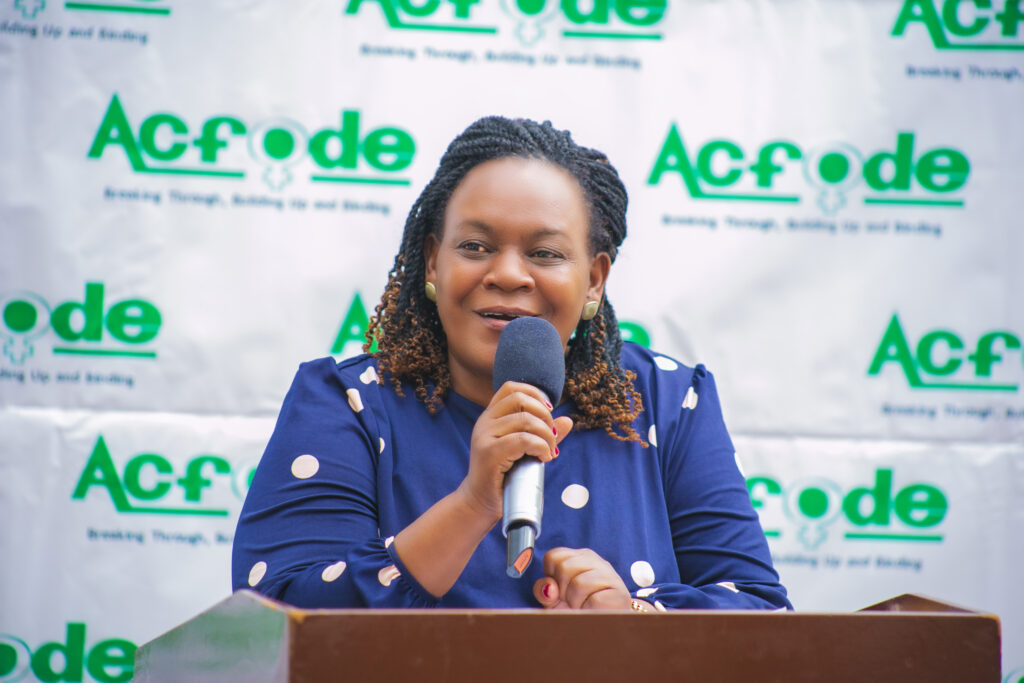
Regina Bafaki is the Executive Director of Action for Development (ACFODE), a national women’s rights organization in Uganda, whose vision is “A just society where gender equality is a reality” and whose mission is “To empower women, girls, and influence legislation and policies of gender equality in Uganda.”
Regina is a feminist and gender activist with 20 years’ experience. She has initiated and contributed to the development of organizations and networks in Uganda with the purpose of ensuring that their programs and services are gender responsive. Regina is passionate about youth development and has initiated and supported such initiatives as “Suati Ya Sasa,” Inter-university debates, and the formation of youth-focused organizations, such as Solidarity for Youth Empowerment (SOFOYE).
Regina has coordinated, contributed to, and overseen the development of programs on gender-transformative approaches, leadership, governance, gender-based violence (GBV) prevention, and economic empowerment. She is an editor of ACFODE’s women and gender equality advocacy publication, Arise Magazine. She also founded and has served on several boards in Uganda. These include Action Aid International – Uganda, Uganda Women’s Network (UWONET), the Centre for Domestic Violence, and the Cross-Cultural Foundation of Uganda (CCFU). She currently chairs Kigezi Women in Development (KWID) and is a member of the Steering Committee of the Women’s Situation Room, an initiative that promotes peaceful elections in Uganda.

